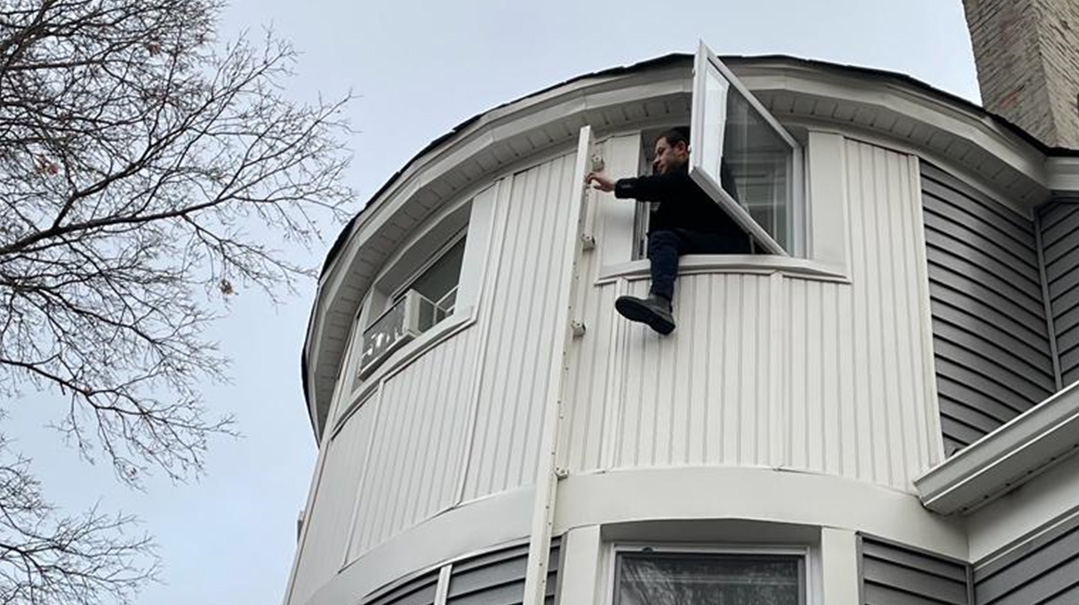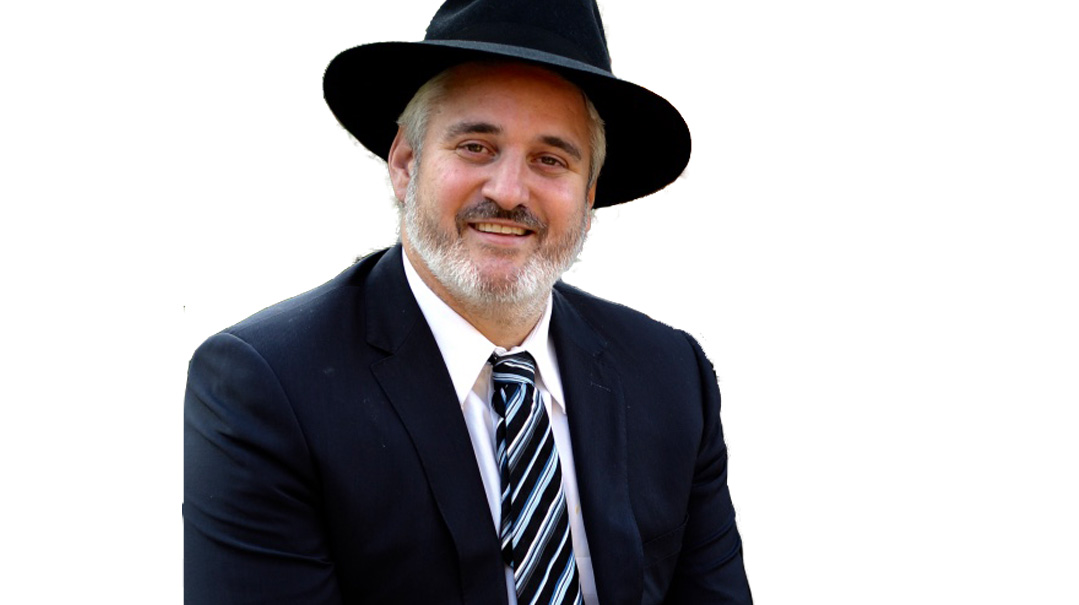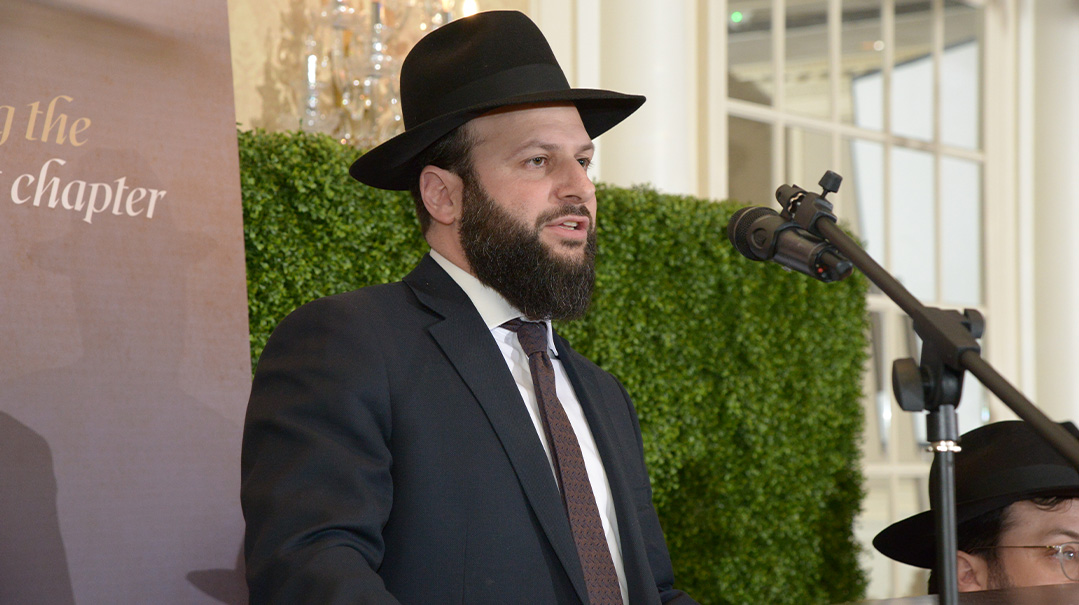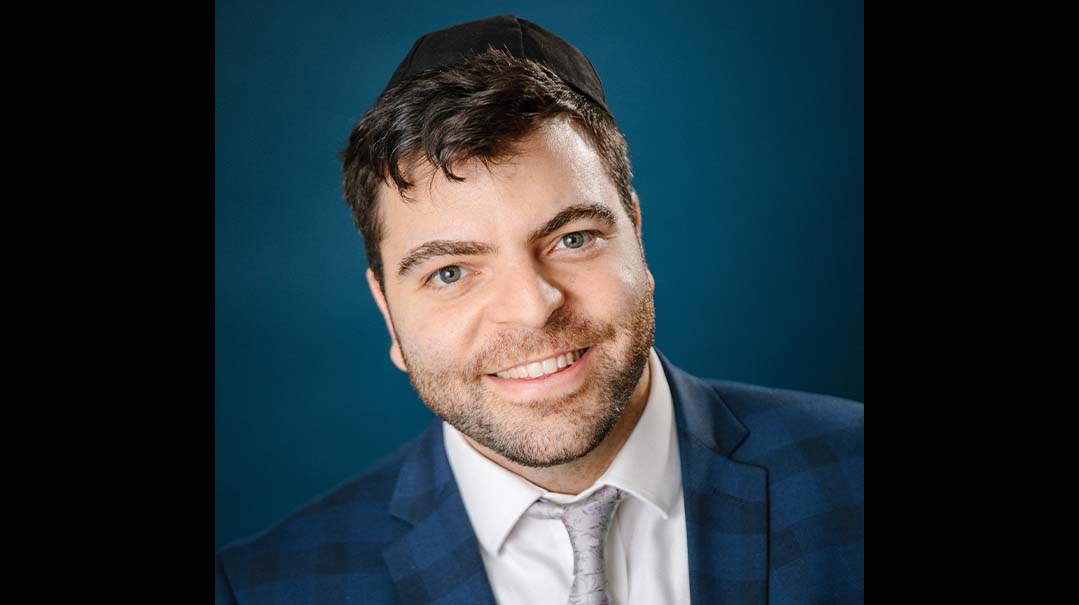10 Questions for Moshe Eisenberg

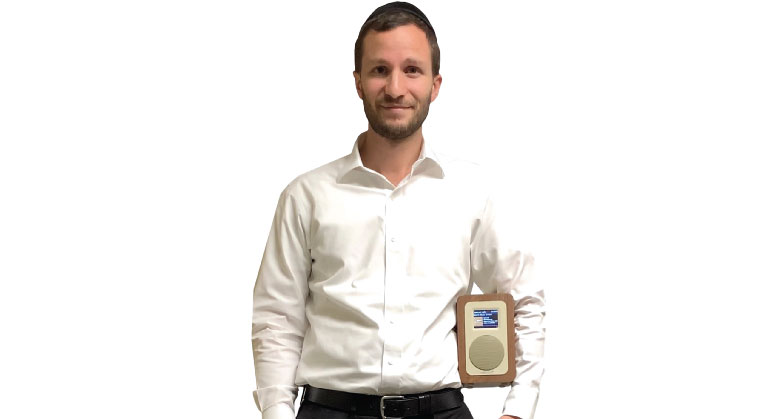
Moshe Eisenberg is the chief operating officer of NakiRadio, which is based in New York, New York.
1. What is NakiRadio?
The short answer is it’s a radio that connects to the Internet and plays only kosher content. The long answer is that NakiRadio is the answer to the migration of kosher entertainment and music streams to the Internet. The content of these streams, of course, remained as kosher as it’s always been, but the web is no place to be looking for entertainment, and there are many things you can encounter on your way to a legitimate destination. The NakiRadio device was designed to act as a hardware filter, to connect to the web and extract only the content that’s acceptable to our community.
2. How does it work?
It’s simple! The NakiRadio connects to your Wi-Fi network, and there’s a station list on the screen where you can scroll through all the stations to see what’s available. Say you’d like to hear the latest trends in Jewish music, there are stations that specialize in that — JewishMusic Stream, Scoop Radio, Israel Radio 1. Interested in the classics? There’s a “Classic Nigunim” station playing songs you’d likely recognize. How about a shiur, story, or good mussar shmuess? There are stations for that, too — just the other day we added four new ones powered by TorahAnytime. One of the great things about radio is that the content is curated by the producer — JRoot or New York Jewish Radio or whoever — so it’s always there and you don’t have to think about finding content. That works really well for NakiRadio, because there are so many stations on this one device, you’ll always find something interesting, entertaining, or uplifting.
3. How did you come up with the concept?
I just work here — the true architect behind NakiRadio, from concept to design to manufacture to ongoing execution, is someone with a unique blend of altruism and technical know-how who wants to stay anonymous. When he saw that Jewish radio was migrating to the Internet, he wanted to help frum people retain access to it in a safe and responsible way. He knew I like technology, and he offered me the opportunity to get involved in managing the technical and logistical aspects of the operation. Why a radio? A frum FM station in Brooklyn kept going off the air, because there were complications with the FCC licensing that’s necessary for traditional radio-wave broadcasting. They decided to just convert it to Internet radio, which is much cheaper and has a wider audience, and when that happened, we realized we could create a dedicated method for frum users to access this media and even include a lot more stations.
4. Where’s your clientele based?
Mainly the major frum communities across the country and the world — New York, Chicago, Los Angeles — and even places like Guatemala City, Honolulu, Zurich. We’ve shipped a NakiRadio unit to more than 150 locations around the world. One of the stations we manage is Shazak Parsha, a dramatic kids presentation on the parshah that updates daily. Since it started a few months ago, it’s been tuned into close to 10,000 times, from places like Canada, Australia, Israel, Guatemala, Mexico, Austria, Germany, Russia, Colombia, and of course, the US.
5. What’s the most common question you get?
Whether a NakiRadio purchased today will have access to stations that are added down the line. The answer is yes, and NakiRadio’s ability to update the station list with no action on the user’s part is probably one of our greatest technical feats. Truthfully, once the system was set up, it’s simple for us to make those updates, but we’ve found that this is what impresses our end users most!
6. Any changes you made based on user request?
At first, we just hosted programs that existed prior to NakiRadio, quality stations people enjoy listening to. As time went on, we started getting requests for specific genres — an all-day shiur station, for example. Now we weren’t looking to open our own full-fledged station with all-day programming — we’re happy leaving that to the pros. So instead, we created various stations that function on demand, meaning when a listener tunes in, they’ll hear the broadcast from the start, and the actual content is updated regularly. This way a listener can choose a genre — TorahAnytime Kids to hear an inspiring story with a lesson, Kollel Horaah of America for a detailed daily halachah shiur — and come back the next time for a new installment.
7.What did putting the device together entail?
To get started we mapped out parameters — NakiRadio shouldn’t be a tablet or cellphone-like device, it should be simple to use, and it should look nice. We found a large manufacturer of components for Internet radio and commissioned them to create custom firmware for Naki Radio. Then we had to find a manufacturer who specialized in high-quality speakers. Next, we paired those with a custom-built software provider to run a specialized operating system where we would be in control of the content. Once that was ready, we had to curate content. We hooked the device up to some well-known Internet stations that were already available online — JewishMusic Stream, Geula FM, others — and worked closely with others to bring their content to our platform.
8. What technical issues have you faced?
Some of the stations on NakiRadio are managed in-house, in on-demand format. What that means is we have a system that updates the files regularly so a series of stories or shiurim can run. One day, there was a glitch in the system that blocked an update on one of the shiur stations, it was playing yesterday’s shiur. I wanted to finish what I was in middle of before fixing it, but I got a call from a gentleman who told me that since he bought the NakiRadio a few months ago, he’s been listening to only that station! I fixed it pronto.
9. Have you had to ask any sh’eilahs?
The question of content is a big one: How do we decide which stations, and what content, to include? We were told that things people object to on halachic grounds, even if some rabbanim permit it, should be avoided, but things some people find objectionable based on opinion — something they simply disagree with, even strongly — isn’t a reason to exclude it from NakiRadio.
10. How did you come up with the name?
The implication is that it’s naki — clean — and it’s catchy, which helps for branding and publicity. That said, people have asked if NakiRadio was Japanese for something…
(Originally featured in Mishpacha, Issue 751)
Oops! We could not locate your form.
